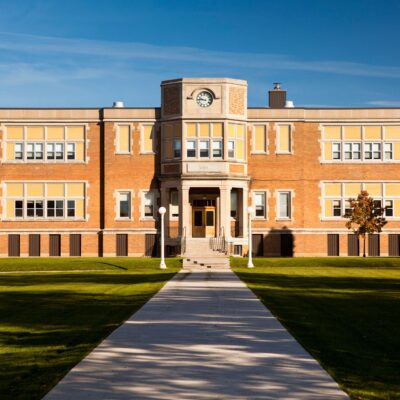“Abe's Heating and cooling were professional and on time. they helped me with two time sensitive projects and did excellent work. I know who I'll be calling if I should ever need an HVAC technician.”
Blog
 If you’re responsible for managing or overseeing heating and cooling in schools or office buildings in Denver or the surrounding area, you’ve likely considered geothermal systems as a sustainable, energy-efficient solution. Geothermal heating and cooling can provide consistent comfort, reduce energy costs, and lower your building’s carbon footprint.
If you’re responsible for managing or overseeing heating and cooling in schools or office buildings in Denver or the surrounding area, you’ve likely considered geothermal systems as a sustainable, energy-efficient solution. Geothermal heating and cooling can provide consistent comfort, reduce energy costs, and lower your building’s carbon footprint.
However, before making the investment, there are several important factors you need to evaluate to ensure geothermal is the right fit for your facility.
The first step is to assess the specific heating and cooling requirements of your school or office. Geothermal systems in Denver work best when designed to match the load characteristics of your building. Determine peak heating and cooling loads, hours of operation, and occupancy patterns. This information helps your technician design a system that maximizes efficiency and comfort without paying for unnecessary capacity.
Geothermal systems rely on stable underground temperatures, but the installation method depends largely on your site’s characteristics. You’ll need sufficient land area for horizontal loop fields or suitable conditions for vertical drilling. Schools and office buildings with limited outdoor space or restrictive zoning may face challenges with some loop configurations.
A professional site survey by a licensed HVAC company can identify the best loop system, whether it’s horizontal, vertical, or pond/lake loops, ensuring optimal performance within your site constraints.
If you’re considering an open-loop geothermal system, access to an adequate, clean water source is critical. Open-loop systems use groundwater as the heat exchange fluid, so local water quality and regulations will play a big role in system feasibility.
Closed-loop systems, which recirculate antifreeze through buried pipes, tend to have fewer environmental and regulatory barriers. Choosing the right type of system helps ensure compliance and protects your property from potential issues such as ground contamination or water depletion.
Geothermal systems have higher upfront installation costs compared to conventional HVAC equipment. However, they deliver significant energy savings over time, with reduced maintenance expenses and fewer mechanical failures. Carefully consider your budget but focus on lifecycle costs rather than just initial price.
At ABE Heating and Cooling, we offer transparent estimates and will help you evaluate return on investment to make an informed decision aligned with your financial goals and facility requirements.
Installing geothermal HVAC for Denver’s schools and offices requires specialized expertise and experience. Choosing a licensed, bonded, and insured company like ABE Heating and Cooling ensures your project meets Colorado state requirements and adheres to ethical business standards. Our technicians provide clear communication, upfront pricing, and respectful service, protecting your building during installation and ensuring you fully understand your system.
Geothermal heating and cooling can be an excellent investment for your school or office, delivering reliable comfort and sustainability for years. To explore whether it’s the right solution for your property, contact ABE Heating and Cooling today for a free, no-obligation consultation. Our expert team in the Denver Metro area, and beyond, is ready to guide you through the process with professionalism and integrity, providing quality service at competitive prices.
Contact us to learn more about boilers and to schedule your boiler’s annual service. We service homeowners and light commercial customers in the Denver Metro Area and beyond (Service Area).